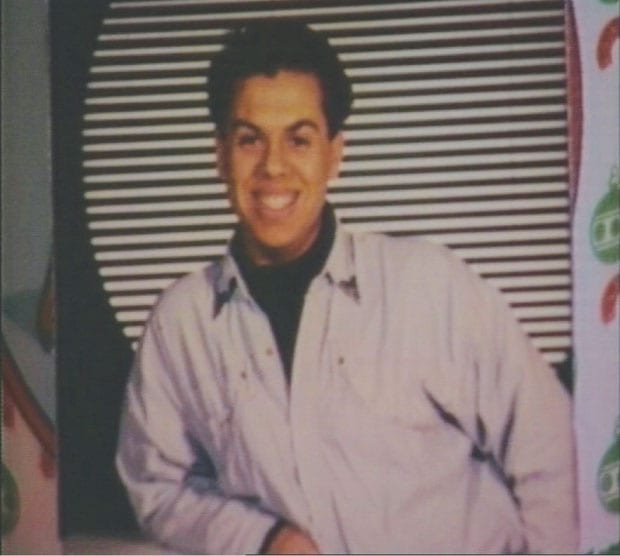Nicholas West’s kidnapping, torture and murder was a turning point for hate-crime investigation and prosecution in Texas

HATE | Nicholas West’s murder was investigated and prosecuted in a way previous hate crimes weren’t. Judge Jack Hampton (inset) gave a murderer a lighter sentence because the victim was gay. (File Photo)
TYLER — In 1988, Judge Jack Hampton in Dallas delivered a shocking ruling in the sentencing phase of a man who attacked two gay men in Reverchon Park, one of whom later died. Hampton proudly told reporters he gave a lighter sentence to the murderer because his two victims were gay.
Two years later in Houston, Paul Broussard was beaten and stabbed to death by a group of teens from The Woodlands who went to the Montrose area to target gays. Houston police said there was no evidence of a hate crime.
And then, Donald Aldrich confessed he wanted to kill a homosexual. He thought that would clear him of the 1993 murder of Nicholas West in Tyler.
This week marks the 20th anniversary of West’s brutal murder that was a turning point for how gay and lesbian crime victims are treated in Texas. Steve Sprinkle, author of the book Unfinished Lives, which tells the stories of the victims of anti-gay hate crimes, called the West murder symptomatic of a cultural blind spot in East Texas. However, West’s murder was taken seriously in a way others in Texas hadn’t been.
When the New York Times interviewed Smith County District Attorney Jack Skeen, he said, “The bottom line is, it was a cold-blooded execution.”
West was kidnapped from Bergfeld Park in Tyler by Aldrich and two other men, driven 20 miles to a gravel pit where he was tortured, shot and left for dead.
 Wesley Beard, a friend of West’s, described Bergfield Park as a meeting place for the gay community.
Wesley Beard, a friend of West’s, described Bergfield Park as a meeting place for the gay community.
“The park is situated in a historic area, one of Tyler’s best neighborhoods,” Beard said. “Gays didn’t meet there for sexual encounters.”
Beard became the public face of the West murder, appearing on Donohue, Larry King Live and other local shows to talk about it. He billed himself as the founder of the East Texas Gay and Lesbian Alliance, a group that didn’t actually exist. He took on the title as a credential that would give him a platform from which to address his friend’s murder.
Beard talked to the press and to police and worked with the Lesbian Gay Rights Lobby of Texas. He attended the assailants’ trials and was vilified for his role as the vocal spokesman of the LGBT community. Many people, although horrified by the murder, didn’t want Tyler’s image sullied by any public discussion of homosexuality.
Unlike the reaction to earlier hate crimes in Texas, West’s murder sparked Tyler’s first gay and lesbian rally, which was held in January 1994. Both state Sen. Rodney Ellis and state Rep. Garnet Coleman attended. The vigorous prosecution of the assailants demonstrated what the New York Times described as “the limits of intolerance.”
“Nicholas West was perceived as effeminate,” Sprinkle said. “That sealed his fate.”
West was forced at gunpoint into a car. He was taunted, his watch and wallet stolen and then taken to a gravel pit where he was shot nine times.
“That’s why his murder was particularly brutal,” Sprinkle said. “They weren’t satisfied for him to die without suffering first.”
A change of venue moved Aldrich’s trial to Kerr County. Before it began, Beard said he would hear comments like, “We knew something like this was going to happen because of the life he [West] decided to live.”
After the murder and throughout the trials, Beard made sure the public never forgot West, not only as the victim of a barbaric murder but as a man who was loved and who had a future. After the three assailants were convicted, Beard said people told him, “Oh, Wesley, I’m so proud of you.” That sentiment was a 180-degree turnaround from the public’s earlier admonitions to keep quiet.
Henry Earl Dunn Jr. and Aldrich were found guilty of capital murder and executed. Beard attended their executions.
The third assailant, David McMillan, is serving a life sentence.
Tammye Nash, a previous editor of Dallas Voice, interviewed Aldrich in prison. Investigation Discovery Channel turned that interview into an episode of Hardcover Mysteries. The West family has never spoken publicly about the murder.
Beard said things have changed in Tyler over the past 20 years. He recently spoke to Tyler’s P-FLAG, a group that didn’t exist when West was murdered. Two local colleges also have LGBT support groups, organizations that didn’t exist at the time.
In 2010, Tyler city officials joined members of the group Tyler Area Gays and placed a plaque in Bergfeld Park.
“As a community, we are aware that there are people that are not tolerant of others, and we’re not willing to accept that,” Tyler Mayor Barbara Bass said at the dedication.
Members of the community will mark the 20th anniversary with a commemoration in the park. Beard hasn’t decided if he’ll attend.
This article appeared in the Dallas Voice print edition November 29, 2013.


